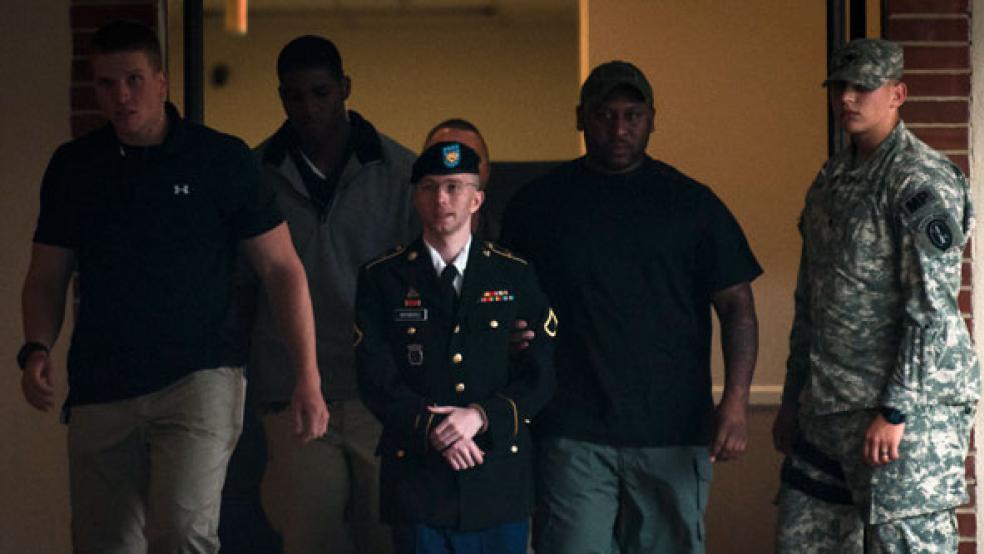A military judge on Tuesday found U.S. soldier Bradley Manning not guilty of aiding the enemy - the most serious charge among many he faced for handing over documents to WikiLeaks.
But Col. Denise Lind, in her verdict, found Army Private First Class Manning, 25, guilty of 19 of the other 20 criminal counts in the biggest breach of classified information in the nation's history.
The U.S. government was pushing for the maximum penalty for the intelligence analyst's leaking of information that included battlefield reports from the Iraq and Afghanistan wars. It viewed the action as a serious breach of national security, while anti-secrecy activists praised it as shining a light on shadowy U.S. operations abroad.
Army prosecutors contended during the court-martial that U.S. security was harmed when the WikiLeaks anti-secrecy website published combat videos of an attack by an American Apache helicopter gunship, diplomatic cables and secret details on prisoners held at Guantanamo Bay that Manning provided to the site while he was a junior intelligence analyst in Iraq in 2009 and 2010.

Manning, who early this year pleaded guilty to lesser charges that carried a 20-year sentence, will still be looking at a long prison term when the trial's sentencing phase gets under way on Wednesday.
"This is a historic verdict," said Elizabeth Goitein, a security specialist at New York University's Brennan Center for Justice.
"Manning is one of very few people ever charged under the Espionage Act prosecutions for leaks to the media ... Despite the lack of any evidence that he intended any harm to the United States, Manning faces decades in prison. That's a very scary precedent," she added.
A crowd of about 30 Manning supporters had gathered outside Fort Meade ahead of the reading of the verdict.
'CHILLING EFFECT'
The guilty verdict on most of the counts could make it difficult for WikiLeaks founder Julian Assange to persuade future sources of information to share classified details with the website.
"That is going to make it more difficult for people who want to deal with Assange. They are going to be at greater risk and that will put his operation at risk," said Michael Corgan, a professor of international relations at Boston University and former officer in the U.S. Navy.
"It will have a very chilling effect on WikiLeaks," he said ahead of the verdict.
Manning, originally from Crescent, Oklahoma, opted to have his case heard by a judge, rather than a panel of military jurors. During the court-martial proceedings, military prosecutors called the defendant a "traitor" for publicly posting information that the U.S. government said could jeopardize national security and intelligence operations.
Defense lawyers described Manning as well-intentioned but naive in hoping that his disclosures would provoke a more intense debate in the United States about diplomatic and military actions in Iraq and Afghanistan.
More than three years after Manning's arrest in May 2010, the U.S. intelligence community was reeling again as a result of leaked security documents. The latest revelations came from former intelligence contractor Edward Snowden, who has been holed up in the transit area of a Moscow airport for more than a month, despite U.S. calls for Russian authorities to turn him over.
WikiLeaks founder Assange surfaced again as a major player in the newest scandal, this time offering aid to Snowden in eluding authorities while seeking asylum abroad.
Assange has been living in the Ecuadorean embassy in London for more than a year to avoid extradition to Sweden, where two women have accused him of sexual assault. He fears that if sent there, he could be extradited to the United States, where he would likely face charges related to the classified documents published by his website.
The cases of Manning and Snowden illustrate the difficulties of keeping government secrets at a time the Internet makes it easy to disseminate them quickly and widely. In addition, more people are granted access to classified data.
This article by Medina Roshan originally appeared in Reuters




